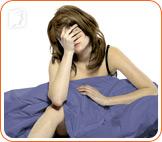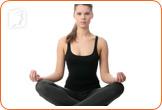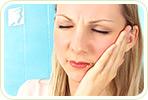
Night sweats are a nocturnal version of hot flashes, and they can make it very difficult for a woman to sleep comfortably at night. Night sweats affect 75% of menopausal women, making them one of the most common symptoms of this transitional period. The intensity of the heat that a woman experiences during the night will often cause her to wake up soaked in sweat with an increased heart rate and flushed face. Luckily, there are certain lifestyle changes you can make to help prevent night sweats.
5 Ways to Relieve Stress and Manage Night Sweats
When a woman is going through menopause, her body undergoes several changes that can produce unwanted and uncomfortable symptoms. Stress can actually trigger night sweats or exacerbate them. To help reduce stress and feel more relaxed, try some of the tips below.
Massage

Treat yourself to a relaxing massage. Relieve tension in your body by getting a deep tissue massage or try to relax by soaking in a spa.
Aerobic Exercise

Exercising regularly is beneficial to your physical and emotional well-being. Any activity that gets your heart pumping will help relieve stress because it produces endorphines in the body which promote feelings of happiness. Try to incorporate at least 30 minutes of exercise into your daily routine by running, bicycling, or swimming.
Yoga

Yoga poses combine stretching with controlled breathing exercises. Participating in this stress-relief technique allows the body and mind to slip into a relaxed state. It is one of the most successful ways to manage stress levels but is also a fantastic way to tone your muscles and improve your flexibility and balance.
Meditation

Meditation helps the body and mind achieve a state of relaxation. The practice can be a little difficult at first, so try consulting an instructor. After some guidance and practice, you can easily meditate for 10 to 20 minutes on your own and in the comfort of your home.
Stretching Exercises

Although it may not seem like it, static stretching is a great way to de-stress. It stimulates receptors in the nervous system which then decrease the amount of stress hormones. Always stretch before and after aerobic exercises. Also try to stretch your muscles in the morning when you first wake up. Hold each stretch for 10 to 15 seconds. Make sure you don't bounce or move suddenly because this can tear muscles.
For further information about night sweats, follow the links below.
Sources
- Boston Women's Health Collective. "Hot Flashes, Night Sweats and Sleep Disturbances". Our Bodies, Ourselves, 2006.
- The National Institute of Health. "Signs of the Menopausal Transition" www.nih.gov
- Von Muhlen, DG, et al. "A community-based study of menopause symptoms and estrogen replacement in older women". Maturitas. Sept 1995; 22(2):71-8.



